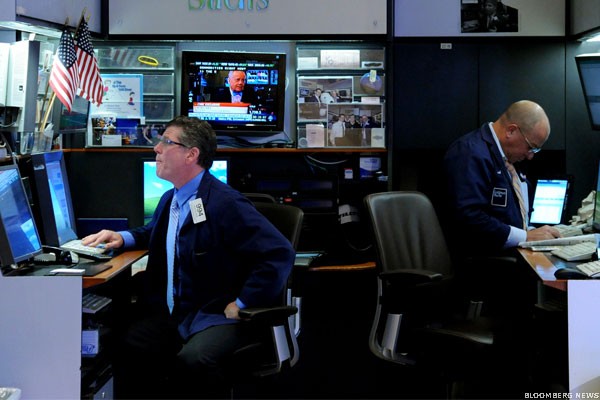Why Retail Traders Should Learn Futures
Post on: 22 Июль, 2015 No Comment

A Magazine Published by CME Group
Why Retail Traders Should Learn Futures
We launched an important and innovative new web site in January called Futures Institute . Important because it serves an important [and growing] segment of traders in the futures markets. Innovative because it takes a new approach to teaching how to learn about futures.
Equity markets have been the choice for retail traders for decades. It makes sense. Every night we see the movements for the Dow, the Nasdaq and the S&P 500 on the local news. The big companies we know so well like Apple, IBM or General Motors are also traded as stocks. Its familiar.
What many traders do not know is that futures markets can be just as familiar. and just as easy to access through the same online brokerages they are already using to trade stocks. Futures can actually complement a traders existing trading portfolio and strategies. For serious traders, thats great news.
Advantages of Futures
There many reasons to add futures to your portfolio, but Ill highlight our top three.
The first is a capital efficient way to get short-term protection. We believe that in every trading portfolio, theres a place for futures. Theres a time and a market environment where trading futures contracts may be beneficial. For example, if youre long a basket of stocks and think the market is going to drop you can sell your stocks. If youre long 10 different stocks, that can be time consuming or costly to do. You can also sell exchange-traded funds (ETFs), but that short-term play may force you to tie up a substantial amount of available trading capital to execute. Using futures can be a more cost effective way to hedge your portfolio using products such as E-mini S&P 500, Nasdaq or Dow .
Everyone has a limit to the amount of trading capital available, so the more efficient you are with your capital, the more opportunities you can participate in.
If youre a long term buy-and-hold stock trader, futures may not be the best play, but for short- to intermediate-term strategies, they can provide valuable capital efficiencies and protection.
The second advantage is expanded opportunities.
When equity markets arent moving much, many traders have a tendency to force trades. It might be quiet in the equity markets, but if youre still looking for something to trade that is not directly correlated to stocks you may want to look at futures markets like gold, soybeans, crude oil or a host of other commodities.
Finally, futures offer round-the-clock trading that allows you to protect assets when the stock markets are closed.
As we so often say in the futures industry, futures are a great way to mitigate your risk.
Reaching The 97 Percent
There are about 16 million active, experienced traders in the world with retail brokerage accounts (experienced traders, for our purposes, are people who make 10 or more trades per month). According to Oliver Wyman research, about 500,000 of those have traded CME Group futures. That means 97 percent of experienced retail traders around the world have never traded CME Group futures. In all likelihood, most of them are not trading because they dont know futures markets. That brings us back to Futures Institute.
Before trading any market, its important to understand it. What are the fundamentals to watch? Is there an expiration? What are the strategies that work? Futures have many characteristics that are different than stocks.
In building the Futures Institute we wanted to create an experience that would provide an easy and effective way to digest this information. Thats why, in addition to including learning tools like videos and research papers, weve built a simulated trading environment that allows traders to test their knowledge and their strategies before trying them out in the real markets.
We felt like this is the most efficient way to help traders learn futures markets, and the best way to reach those millions of traders who have yet to add futures to their portfolio. Beginning March 1, well host the first of our monthly one-week trading challenges where traders can sign up to compete against other traders in our simulated environment.
Its all part of our goal to help traders enhance their skills and learn by trading. And in doing so, help futures become a familiar presence in retail portfolios.
For more information on Futures Institute, or to sign up for trading challenges, visit them here. Follow Futures Institute on Twitter at @FuturesInst














